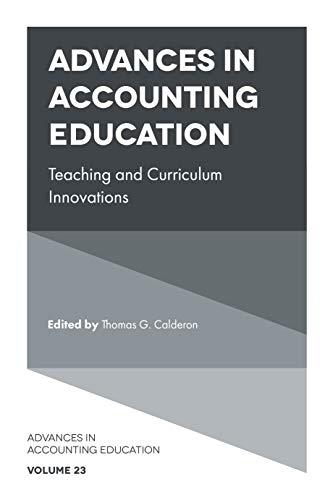Question
As a recently hired accountant for a small business, SMC, Inc., you are provided with last years balance sheet, income statement, and post-closing trial balance
As a recently hired accountant for a small business, SMC, Inc., you are provided with last years balance sheet, income statement, and post-closing trial balance to familiarize yourself with the business.
SMC, Inc.
Balance sheet
December 31, 2019
Assets | $34,500 |
Cash | $25,000 |
Accounts receivable | $10,000 |
Supplies | $200 |
Total assets | $69,700 |
Liabilities and stockholders equity
Liabilities: |
|
Accounts payable | $12,000 |
Salaries payable | $1,000 |
Income taxes payable | $3,675 |
Total liabilities | $16,675 |
Stockholders equity: |
|
Capital stock (10,000 shares outstanding) | $25,000 |
Retained earnings | $28,025 |
Total stockholders equity | $53,025 |
Total liabilities and stockholders equity | $69,700 |
SMC, Inc.
Income statement
For the year ended December 31, 2019
Sales revenue | $110,000 |
Rent revenue | $1,000 |
Total revenue | $111,000 |
Less cost of goods sold | $60,000 |
Gross profit | $51,000 |
Less operating expense: |
|
Supplies expense | $400 |
Salaries expense | $22,000 |
Miscellaneous expense | $4,100 $26,500 |
Income before taxes | $24,500 |
Less Income taxes | $3,675 |
Net income | $20,825 |
Earnings per share ($20,825/10,000 shares) | $2.08 |
SMC, Inc.
Post-closing trial balance
Cash | $34,500 |
Accounts receivable | $25,000 |
Inventory | $10,000 |
Supplies | $200 |
Accounts payable | $12,000 |
Salaries payable | $1,000 |
Income taxes payable | $3,675 |
Common stock | $25,000 |
Retained earnings | $28,025 |
Totals | $69,700. $69,700 |
You are also given the following Information that summarizes the business activity for the current year, 2020.
A. Issued 10,000 additional shares of common stock for $60,000 cash on January 1st.
B. Borrowed $25,000 on March 1, 2020, from Downtown Bank as a long-term loan. The interest rate on the loan is 4% and interest for the year is payable on January 1, 2021.
C. Paid $12,000 cash on April 1 to lease a building for one year.
D. Received $6,000 on May 1 from a tenant for one years rent.
E. Paid $4,200 on June 1 for a one year Insurance policy.
F. Purchased $3,500 of supplies for cash on June 15th
G. Purchased inventory for $125,000 on account on July 1.
H. August 1, sold inventory for $185,000 on account; cost of the merchandise sold was $120,000.
I. Collected $145,000 cash from customers accounts receivable on August 20th.
J. September 1, paid $95,000 cash for inventories purchased earlier during the year.
K. September 20th paid $34,000 for sales reps salaries, including $1,000 owed at the beginning of 2020.
L. Dividends for $9,500 were paid on October 20th.
M. The income taxes payable for the year of 2019 were paid on November 15th.
N. For adjusting entries, all prepaid expense are initially recorded as assets, and all unearned revenues are initially recorded as liabilities (this is just informational)
O. At year-end, $1,050 worth of supplies are on hand.
P. At year- end, an additional $9,500 of sales salaries are owed, but have not yet been paid.
Q. Prepare and adjusting entry to recognize the taxes owed for 2020. The corporate tax rate is 21% of the income before income taxes.
You are asked to do the following:
Journal entries
T accounts
Adjusting entires
Adjusting trial balance
Step by Step Solution
There are 3 Steps involved in it
Step: 1

Get Instant Access to Expert-Tailored Solutions
See step-by-step solutions with expert insights and AI powered tools for academic success
Step: 2

Step: 3

Ace Your Homework with AI
Get the answers you need in no time with our AI-driven, step-by-step assistance
Get Started


